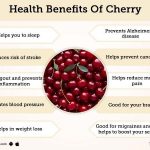Contents
16 Benefits of Stinging Nettle (Plus 7 Side Effects)
Stinging nettles have been used medicinally for millennia. Nettles can help strengthen the immune system, making them beneficial for several ailments.
If you want to give stinging nettle to your child, talk to your pediatrician to know the proper dose that can be safely administered. Pregnant and breastfeeding women and those with underlying health conditions must also consult their doctor before taking stinging nettle as a preventive or therapeutic substance.
Nettle, recognized for its antihistamine properties, can help alleviate the discomfort of seasonal allergies.
The leaves are nutrient-dense and contain:
16 benefits of stinging nettles
- Nutrient-rich and good for overall health
- The high nutritional content of nettle accounts for many of its advantages, including vitamins A, C, D, E, K, and folate, and other B vitamins, calcium, and iron that are easily absorbed.
- Magnesium, potassium, protein, beta-carotene, and chlorophyll are among the other nutrients.
- Stinging nettle includes polyphenols and has a high antioxidant value to aid in the body’s defense against free radicals, which can cause aging, some forms of cancer, and other disorders.
- Research suggests that polyphenol help prevent and manage inflammatory disorders, such as certain forms of cancer, heart disease, and diabetes.
- Several minerals and vitamins in nettle can be beneficial for individuals recovering from illness or stress.
- Plants seldom contain vitamins D or K2, making nettle unique.
- It contains approximately three times your daily intake of vitamin A in only one cup.
- Iron and vitamin C improve iron-deficiency anemia.
- Allergies
- Stinging nettles may have anti-inflammatory and antiallergy qualities, particularly in hay fever.
- These substances work against the body’s natural reaction to pollen and other allergens, causing nasal congestion and watery eyes.
- Gout
- People with high uric acid levels may benefit from stinging nettles.
- Gout occurs when uric acid accumulates and crystallizes in and around the joints, resulting in inflammation and pain.
- Stinging nettles can help eliminate excess uric acid and alleviate certain symptoms of the condition by brewing a cup of stinging nettle tea.
- Urinary tract infections
- Drinking stinging nettle tea, along with vitamin C and cranberries, can help cure a bladder infection by reducing inflammation in the bladder or urethra.
- Nettle tea encourages urine to flush out infection-causing germs.
- May help treat benign prostatic hyperplasia (BPH)
- Studies suggest that stinging nettle can help reduce the enlargement of the prostate in individuals with BPH by changing hormone levels or interacting with prostate cells and alleviating other symptoms.
- Fingernails
- Because nettles include silica and other minerals required for nail production, drinking nettle tea may encourage healthy nail growth.
- Skin and hair
- Nettle tea is a natural skin and hair beautifier due to its nourishing and anti-inflammatory effects.
- It has been proven to help clean up acne and eczema, stimulate thicker, shinier hair, and promote new hair growth.
- It boosts scalp blood circulation that promotes hair growth.
- Benefits women’s health
- Stinging nettle’s minerals and chemicals are especially useful to women at all stages of life. Nettle can improve the general health of the female reproductive system and is frequently included in blends for postmenstrual syndrome, fertility, and menopause.
- Nettle can aid with exhaustion caused by iron deficiency resulting from a heavy menstrual cycle and pregnancy. It can help breastfeeding mothers enhance their breast milk by providing extra nutrients during pregnancy and lactation.
- Blood pressure
- They offer several nutritional properties beneficial to the cardiovascular system. They have been utilized in orthodox and alternative medicine to reduce inflammation and enhance cardiovascular health factors including blood pressure and cholesterol.
- More human studies are needed to evaluate the use of nettles for blood pressure reduction, including improved blood lipid indicators in people with and without diabetes.
- Blood sugar control
- Nettles have been found in human and animal studies to protect against hyperglycemia by lowering fasting blood glucose levels.
- Nettles are known to enhance insulin release by the pancreatic islets of Langerhans.
- Researchers think that the processes are linked to flavonoids in nettles, which include tannins and carotenoids with antioxidant capabilities.
- Anticancer properties
- Nettles include anticancer substances (such as lectins) and flavonoids (quercetin and beta-sitosterol).
- They help reduce inflammatory indicators, which are anticancer qualities.
- Autoimmune disease
- Nettles and nettle extract are often used in topical treatments to treat autoimmune disorders, such as rheumatoid arthritis, due to their possible anti-inflammatory and analgesic qualities.
- According to research, nettles may be an effective and safe supplementary therapy for various inflammatory autoimmune illnesses.
- Supports eye health
- Beta-carotene and vitamin A have been proved to preserve eye health.
- The beta-carotene content of nettle leaves is 10 times that of wheat and barley flour. This vitamin is essential to maintaining a healthy retina and ensuring an adequate response to light.
- Reduces risk of infection
- According to research, nettle tea possesses antimicrobial, antiulcer, and antibacterial characteristics that may help prevent infection.
- Researchers discovered that nettle tea was useful to avoid alcohol-related ulcers by efficiently inhibiting certain bacteria known to cause human health issues.
- Protects heart health
- Nettle tea may help protect against cardiovascular illness, such as blood clots and high blood pressure, according to researchers.
- Research suggests that nettle tea includes phenolic chemicals that help prevent heart disease.
- Nettle tea drinkers may have reduced blood pressure, which decreases the burden on the heart. Nettle tea’s anti-inflammatory effects help reduce inflammation in the arteries and blood vessels, lower blood pressure, and prevent heart disease.
- Kidney and gallbladder health
- Nettle is an excellent diuretic and may lower the risk of kidney and gallbladder stones.
- Being a diuretic, stinging nettle helps eliminate harmful substances, including pathogens, rapidly and guards against bladder infections.
Brew nettle tea using tea bags or with fresh nettle root or dried nettle leaves for optimal health benefits.
QUESTION
7 possible side effects of stinging nettle
Apart from its stinging leaves, nettle is a safe herb that typically does not have any side effects. Once the leaves are heated or dried, the formic acid (which causes the sting or rash) is destroyed.
When used as indicated, stinging nettle is generally regarded as safe and healthy for overall health. However, do not overdo it.
Still, seven possible side effects of stinging nettle may include:
- Research on nettles is inconclusive, and it should not be advised as a replacement for typical dietary and lifestyle adjustments and medicine.
- Stinging nettle may have diuretic properties. If you use blood thinners, blood pressure medicine, diuretics, or diabetic medication, see your doctor before using it in your diet.
- Some studies have reported that consistent intake of nettle tea enlarged breasts in a man and nipple discharge in a woman.
- Though nettle usage is typically well-tolerated, possible adverse effects include gastrointestinal disorders, such as constipation and diarrhea.
- When fresh, unprocessed nettles are applied topically, they quickly elicit dermatologic symptoms, such as stinging, itching, and redness.
- Using nettles orally as a vegetable, tea, or medicinally during pregnancy is likely dangerous because nettles may contain substances that function as abortifacients. Women should use caution during lactation because there is limited evidence on the safety of nettles.
- Nettles may be involved in various drug-nutrient interactions. There could be mild interactions with hypertension or antidiabetes medicines or supplements due to their possible antihypertensive and blood sugar-lowering effects. Interactions with central nervous system depressants, lithium, and warfarin are possible. Patients should discuss the use of nettles in extract or supplement form with their doctors or pharmacists to ensure safety.


